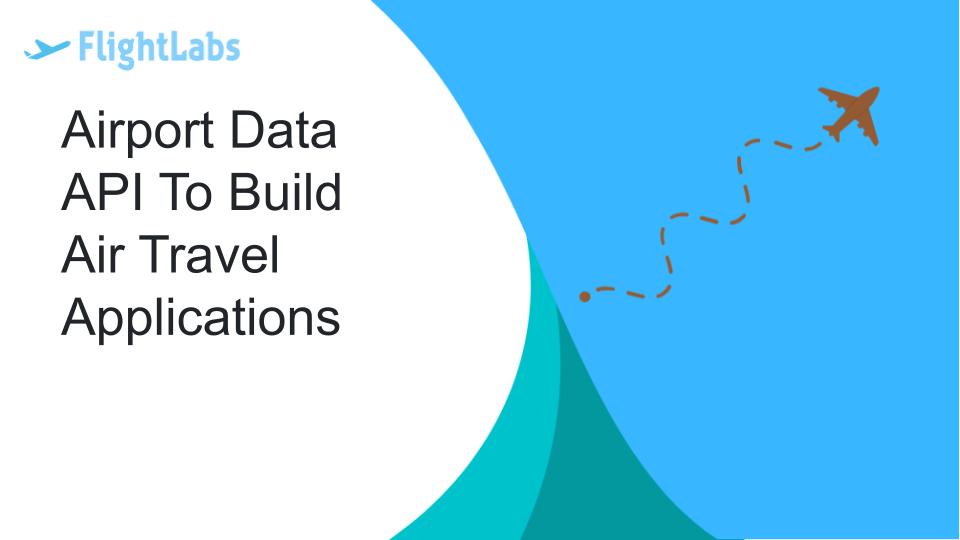Airport Data API To Build Air Travel Applications

Airport Data APIs have revolutionized the way developers and businesses access essential aviation information to build innovative air travel applications. These APIs offer a wealth of data about airports, flight schedules, weather conditions, ground transportation, and more, empowering developers to create robust and user-friendly applications. In this blog post, we'll explore the benefits of using an Airport Data API to build air travel applications and how it enhances the overall user experience.
Comprehensive Airport Information:
One of the key advantages of using an Airport Data API is access to comprehensive airport information. Developers can retrieve data about airport facilities, services, amenities, terminals, gates, lounges, and more. This information is invaluable for building applications that help travelers navigate airports efficiently, find services, and enhance their overall airport experience.

Get Started With FlightLabs
FlightLabs provides real-time flight schedule data, including arrivals, departures, delays, cancellations, gate assignments, and baggage information. Developers can integrate this data into their applications to provide users with up-to-date flight information, notifications, and alerts. This real-time feature ensures that travelers have accurate and timely information about their flights.
Weather Conditions and Air Traffic:
Another benefit of using anFlightLabs is access to weather conditions and air traffic data. Developers can retrieve weather forecasts for airports, including temperature, wind speed, precipitation, visibility, and more. Additionally, air traffic data provides insights into airspace congestion, flight routes, and potential delays. Integrating this data into applications helps travelers plan their trips and anticipate weather-related disruptions.
Ground Transportation Options:
FlightLabs offers data on ground transportation options, such as taxis, shuttles, rental cars, public transit, and rideshare services. Developers can provide users with information about transportation providers, routes, schedules, fares, and booking options. This integration streamlines the travel experience for users, allowing them to plan their airport transfers seamlessly.
Customizable Features and Widgets:
FlightLabs offers customizable features and widgets that developers can integrate into their applications. These widgets display relevant airport information, flight schedules, weather updates, ground transportation options, and more. Developers can customize the appearance and functionality of these widgets to meet the specific needs of their applications and users.
Integration with Booking Platforms:
FlightLabs seamlessly integrate with booking platforms, allowing developers to automate flight bookings, retrieve pricing information, and confirm reservations in real time. This integration enhances the booking experience for users, reduces manual errors, and improves efficiency. Travel businesses can offer a seamless end-to-end booking journey, from flight search to ticket issuance, using Airport Data APIs.

Analytics and Insights:
FlightLabs offers analytics and insights capabilities that developers can leverage to analyze user behavior, booking patterns, flight preferences, and more. This data-driven approach helps developers optimize their applications, improve user experiences, and make data-informed decisions. By analyzing trends and performance metrics, developers can enhance the effectiveness of their air travel applications.
Global Coverage and Reliability:
FlightLabs provides global coverage, sourcing data from airports worldwide. They ensure data accuracy, reliability, and timeliness, fostering trust among users and stakeholders. Developers can rely on Airport Data APIs to access up-to-date and reliable data for airports across different regions and countries, making their applications more robust and dependable.
Conclusion:
In conclusion, using an FlightLabs to build air travel applications offers numerous benefits, including comprehensive airport information, real-time flight schedules, weather and air traffic data, ground transportation options, customizable features, integration with booking platforms, analytics capabilities, global coverage, and reliability. Embracing these APIs enables developers to create user-friendly and innovative applications that enhance the overall air travel experience for users.